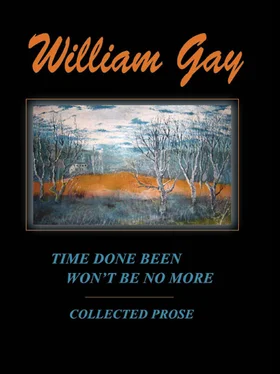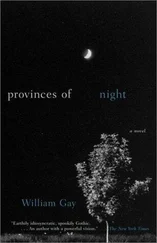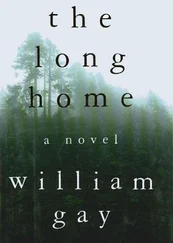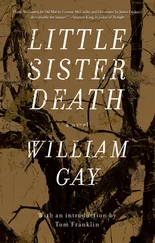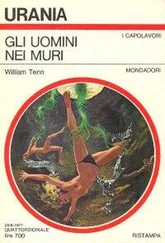She’d be pissed and leave in a snit, but don’t think twice, it’s all right. She was outward-bound, anyway. She and Truman Capote had taken to scuffling and fighting and hissing like cars, and I was sick of the both of them.
Sometimes I could hear Dylan’s boots on the stairs. He stayed in his room a lot, drinking, I think. He sat on his cot and tuned his Martin while McCullers, interrupted at her packing, screamed through the wall You want to knock that shit off? It’s three o’clock in the morning. Do you have to tune that thing at three o’clock in the morning?
Of course this attic was not a nice place to live. Sometimes, in fact, it was a sordid, squalid place. You couldn’t have gotten Eudora Welty in there with a sawed-off shotgun. Walker Percy, slumming, sneered, waved a dismissive arm and hailed a cab for uptown. Its tenants drank too much and had indiscriminate and unprotected sex as often as they could, and when they weren’t doing it they were thinking about it in a constant state of tumescence. Regret and loss tinged the windowpanes, darkened the fading wallpaper. Once, Faulkner passed out sitting with his back pressed against the hot radiator and when they kicked down the door and peeled off his polo shirt the vertical brown burn marks on his back looked like the bars on a window.
This place was the set on the wrong side of the tracks and too near them. There was shouting and glass breaking at hours far past midnight. In the dark, freight trains went highballing past, their shrieks honing away to a thin remnant of loss that was like a taste on the back of your tongue that made you want to go with them and see the unknowable landscape they were arc-welding out of the night. The deferential ghosts of James Agee’s Alabama sharecroppers hovered in the hallways or crouched figuring with their fingers in the dust on the floorboards, spectral and transparent revenants toting up the ciphers of lives that always came up wanting.
Dylan didn’t seem to mind. He settled in. Sometimes I could hear him coughing. Sometimes his typewriter went on pecking until dawn.
On leave, preparatory to shipping out for the South China Sea, I imported Dylan to Lewis County, Tenn., bought him in like contraband in my sea bag. Three albums now. Two friends and my brother and myself sat in my brother’s room grouped around the stereo.
I didn’t say that I had been listening to him for months and that I’d decided he was a visionary and part prophet, or that I was so far into the words I might never get out or even want out.
The needle hissed on the vinyl. The guitar picking seemed to come out of some old, lost, absolutely timeless place. It could’ve been a hundred years ago or next week. The voice, when it came, was always unexpected. You were hearing it for the first time no matter how many times you’d heard it before, the voice weary and resigned and pissed off all at the same time it ain’t no use to sit and wonder why, babe, iffen you don’t know by now.
Son of a bitch sure can’t sing, my friend said, his ears forever spoiled by mainstream Elvis and Johnny Mathis.
He can’t blow that French harp, either, the other friend said.
I didn’t protest. I’d heard all this before. He’s a good guitar picker, I said again.
But my brother, who was learning to play then and whose instrument was never more than an arm’s reach away, picked his guitar up from the bed. He leaned and carefully set the tome arm back. When the guitar came again he started turning the keys and plucking strings, matching the tuning that was coming out of the speakers. When he was satisfied, his left hand began felling around the strings, experimentally for the chords.
Calendar pages riffled, blew away in the wind, it was another year. I was in the Gulf of Tonkin in the South China Sea, war smoldering like a banked fire. Eight-inch guns hammered and hammered and paint flaked off the galley ceiling like harsh gray snowflakes. The ship maneuvered to avoid conjectural torpedoes. On the decks of our carrier, jets came and went and came and went, left loaded and returned empty in a seemingly endless cycle. On the bench, the fires from ammunition dumps flared and ebbed all night. By day, burning oil refineries smoked and stank.
Already I was looking forward to getting the hell gone. Something didn’t quite compute here. What was happening never matched what I was reading about in the paper. There seemed some grotesque disparity between event and event’s recounting.
Still, there was Dylan. Four albums now. On the new one, the songs were different; surreal images were becoming more and more common. These songs flickered around the edges. They were becoming more personal, their concerns moving from the ills of society toward some interior landscape. Less protest music. He seemed to have decided it was a lost cause. He confided in the hallway that he sometimes felt as if he were charged with holding together a world already faulted, leaking and determined to come apart at the seams. The folk-music business expected him to do this. He was tired of it. He didn’t think he could do it. He didn’t think the world was going to last.
I was keeping the music to myself. Dylan was an acquired taste nobody I knew was interested in acquiring. I had one of those small phonographs, the kind that closes like a suitcase, not unlike the one Anse Bundren’s new wife is carrying at the end of As I Lay Dying , and I kept it with my records in the computer room that was my workspace. I would go there in the small hours of the night and write and listen to music.
I had a lot more records now: blues and folk and the new singer/songwriters who were working Dylan’s side of the street.
Timing is everything. I was playing the album, Another Side of Bob Dylan , a song called “All I Really Want to Do.” To the untrained ear this song is particularly grating. There’s a part where, on the work, his voice rises and rises and pulsates until it screeches into a sort of yodeling giggle. It’s great, and funny as hell, but there are folks who regard this moment as a perpetual fingernail on an interminable chalkboard.
McPherson, my leading petty officer and boss, chose this moment to come through the hatch and see what was going on. If it had been another song, a moment earlier or a moment later, everything might’ve gone down differently.
He gave a sort of strangled inarticulate cry. He seemed taken with some manner of fit. His mouth was a horrified; his eyes bulged in agony. He clasped his hands to his ears. God Almighty damn! He screamed, and ran across the deck and jerked the cord from the wall. He grabbed up my records blindly Dylan, Joan Baez, Brownie McGhee, Jimmy Reed. He jammed them between the lid and turntable and forced the lid down and grabbed up everything and whirled and went through the hatch. I could hear him going up the ladder to the main deck.
I followed him. He was at the rail. The deck rose and fell in the chop.
Drown this caterwauling son of a bitch, he said.
He hurled everything into the sea, albums skipping like Frisbees, the phonograph listing and filling with water, going down for the third time, do not resuscitate.
He turned and went without a word.
I stood watching the records drift toward the shore. Like messages sent into space, hello out there. I wondered what the Vietcong would make of these strange cultural artifacts. All these drowned bluesmen and Cambridge girls with ironed-looking hair. I imagined them putting Dylan on the turntable, lowering the tonearm. Scratching their heads in perplexity. Goodbye’s just too good a word, babe. So I’ll just say fare-thee-well.
Timing is everything. When I stepped off the plane that had flown me from Japan to Long Beach for discharge, a crewman’s tinny radio was blasting away. I stepped into the hot glare of sunlight, and a familiar voice was demanding, How does it feel? To be on your own? A complete unknown? With no direction home? Like a rolling stone?
Читать дальше
